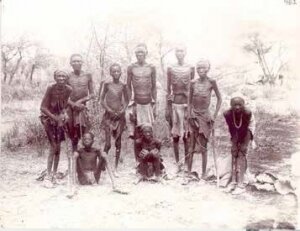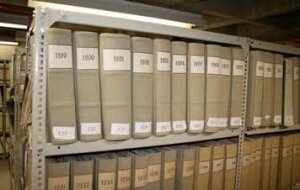National Archives
The National Archives (NA) maintains the institutional memory of government ministries, offices and agencies; collects and preserves the nation’s history and unpublished documentary heritage; and supports education and research by providing access to these resources. NA is also mandated by Act of Parliament (Act 12 of 1992), to supervise and provide training in records management in all Government offices, Ministries and Agencies as well as parastatals.
The National Archives keeps the German and South African colonial government records since 1884. However, not only colonial documents can be found. It is especially proud to house the world-famous Hendrik Witbooi Papers which were inscribed in UNESCO’s “Memory of the World” register.
- raises awareness among senior staff about records management
- provides training and advice
- conducts inspections, and
- approves filing systems.
- A reading room where all this material can be viewed (except government records that are younger than 30 years)
- Professional advice on how to find anything
- Photocopying and digital copying service, including photos
- Sales of Archives publications and old Government Gazettes.
- Non-governmental records on Namibian history, for example from churches, NGOs, private collections
- Literature on Namibian history (the library catalogue lists 28,000 items)
- Government publications, which must be delivered by law to the Archives
- Academic theses
- Maps and plans (currently over 6,000)
- Posters
- Namibian sound recordings, especially oral history (currently over 1,300 cassettes)
- Namibian films and videos
- Photos (22,000 catalogued and digitized photos)
- Digital material
- Microfilms from foreign archives, for example the German colonial archives in Berlin
Academic researchers from all over the world who are working on their theses, on books and articles can be found at all times. But the archives are not only for the academics. Many people come to find out more about their family history. Construction plans can be found to renovate old buildings. Traditional leaders look for proof of their ancestry and succession rules.
The photo collections are especially popular and are used by academics for research, by the tourism industry to illustrate brochures and decorate lodges, by school children to make their projects look more attractive. Although this is unusual for national archives, we do serve school students, because no other institution in Namibia can offer historical information and photos.



